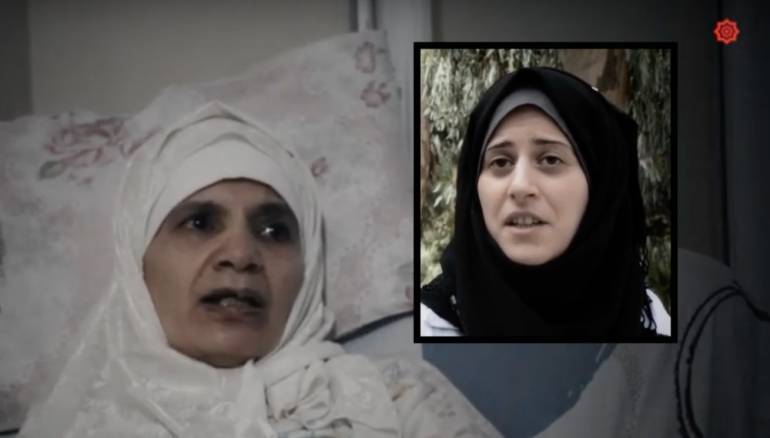‘Whining’ is the story of a nightmare that has been shocking the souls of the Syrian people. Gruesome atrocities in security chambers and prisons cells have no ending while Bashar al-Assad stays in power.
The documentary is produced by Zaman al-Wasl.
Arrests by the Assad regime are systematic, especially with women, where the arrests have become a despicable lethal weapon. It’s a double-edged sword. It depends on intimidating the female detainee, breaking her psychologically, humiliating her family and taking revenge on the opposition. And most importantly, depriving the detainee of her future.
The perspective in society of the female detainee is engulfed with indictment and suspicion due to regime leaks about atrocities committed against them by prison officers.
The female prisoner pays double for a crime she never committed.
If we assume that demanding a right to live in dignity is a crime.
There is no accurate data for female prisoners, and it is not known how many have died under torture.
The Arab Organization for Human Rights says the number of female detainees in the regime prisons is more than 175,000. Other stats made by advocate groups reveal lower or higher numbers. But injustice is still injustice, regardless of the number.
The first shout for freedom broke the fear of Syrians, it was the voice of all. Men, women, young boys and girls.
Syrian women were at the first peaceful demonstrations and were among the first arrested.
In March 2011, the Syrian people took to the streets, after decades of oppression and tyranny. They called for freedom, demanding their right to live an honorable life with social justice and liberty.
Everybody participated in the revolution; and the bullets of regime indiscriminately shot in the faces of all. Men, women and children were made martyrs.
Arrest campaigns tracked all civilians, no norm or moral standards were taken into consideration.
Arrest campaigns were random, as was the mass punishment and intimidation. Most of the female detainees had no active role in the demonstrations, but they were arrested because they were residents of a certain area, or from a revolutionary city. Some were arbitrarily detained by the regime to pressure their families. After the military escalation, women were arrested to be a part of prisoner exchanges and swap deals.
The arbitrary arrests began before the revolution erupted in 2011. Arrests are a fundamental practice of the Assad regime. It’s the core of the regime’s nature.
Everyone knows that Syria has 13 intelligence departments, each one has numerous prisons. Some are known and some are still secret, some are identified by a number and some have no number. All have been operating since the Assad family took power in 1970.
Adra Central Prison, which founded to be a civilian prison, was not much different from the prisons of the security services. Adra and other prisons are cellars of detention where no judicial power, laws or legal regulations are being implemented.
The only benefit of Adra prison is the regime’s recognition of all the people held in detention. Detainees in other prisons have been abandoned and forgotten, without names or recognition, without any guarantees or rights, including, the right to life.
People who die in security branches are deprived of the right to a proper burial or a tombstone that mentions their name.
To reach Adra prison is a step towards freedom, since it’s an admission that the female detainee is still alive, but that does not mean that she is approaching freedom.
Not all female detainees have endured to physical assault, but all of them were subjected to psychological abuse. The deep impact damage is indelible. It can stay forever. The hardest experience of the detention is when you realize that, getting out of prison does not means you have obtained your freedom.
Most of the security prisons have underground cells. No windows, thick and clammy walls, bricks mashed with blood, clay saturated with tears, spirits choked with dust, where nobody hears your cries.
Blood has a smell, but has no voice, tears have a taste but have no voice. Souls have own whine but have no voice and whining is a voice that has no sound.
The Assad regime’s prisons are still full, female prisoners are still there; alone with their grief amid the silence of the world.
This article was edited by The Syrian Observer. Responsibility for the information and views set out in this article lies entirely with the author.


